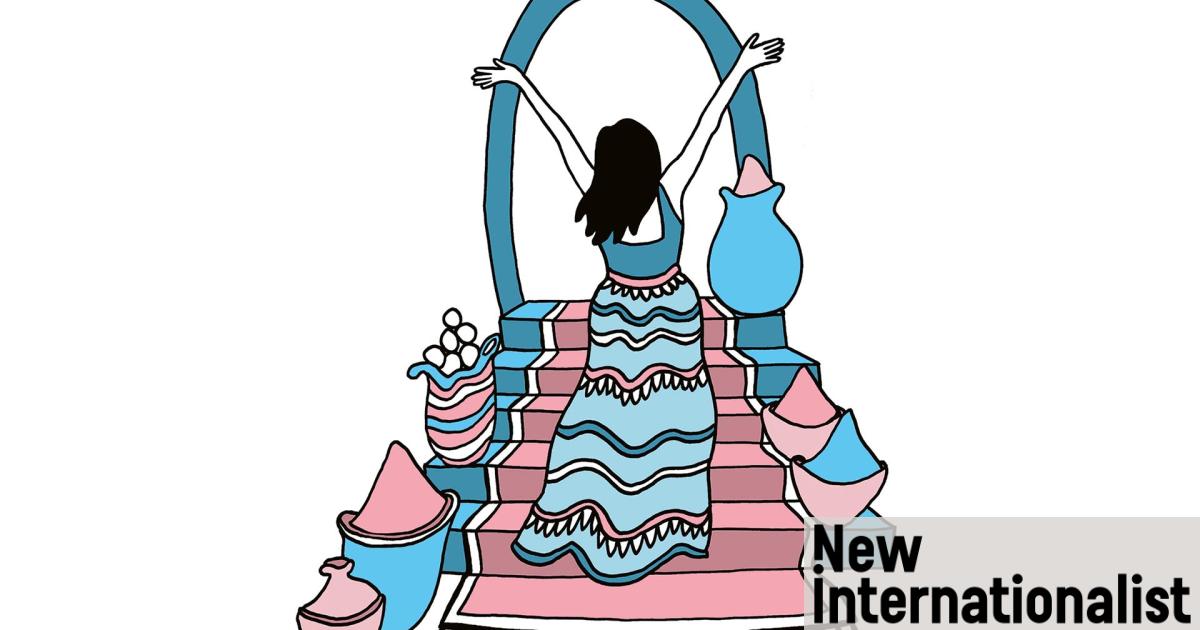
New Internationalist’s Agony Uncle helps a reader find answers in our troubled political times.
Q: I’d like to do a year studying abroad in Jordan, but as a trans woman I’m worried: I’m unsure what my rights would be, and there have been high profile cases of harassment and surveillance against people like me.
Would it be too difficult or risky, or does restricting my horizons do a disservice to trans Jordanians and others?
Wary of Winchester
If you are marginalized in a hostile society, it is all too tempting to switch off from parts of the world. I know women who do not walk around the city alone, people of colour who decide not to holiday in very white regions, gay men who avoid sporting events because of an overly macho atmosphere.
I can’t fault these choices, but I regret how fear and oppression lead us to narrow our own experiences. So, I admire your commitment to living an expansive life; I am sure you have had to bat away thoughts and assertions that you should live a smaller one.
That said, your proposal is a big one. Jordan is a religious country with few legal protections for trans people, albeit one where a small number of people have transitioned. A whole year, where any difficulties could jeopardize your studies, is a long time. You mention threats and hate crimes against LGBTQI+ people, and will likely have thought too about the less overt, but still challenging, risks. Would you be able to continue with hormone therapy – or other gender-affirming healthcare – if you are receiving it? Is the idea that you’d live discreetly, or openly, and could you maintain the stress of either for a year? This is not to mention the risk of discrimination in a workplace, university or from a landlord.
It is right that trans Jordanians should be first and foremost in your mind. Perhaps, like me, you’ve looked at some of the positive stories: I enjoyed reading the Amman-based queer magazine My.Kali, which reports on burgeoning activism and queer scenes across the Middle East and North Africa. But there are serious, growing problems in Jordan too: LGBTQI+ venues are being forced to close, with significant state surveillance wielded against those involved.
Would you be able to just live your life on the ground, and avoid it all? The truth is that, from the outside, it is not easy to understand the experiences of trans women in Jordan today; this is the power of the closet. Not only does it close you off from yourself, it closes people off from each other, and entices the rest of society into the delusion that LGBTQI+ people do not exist around them.
You and I know that trans and gender-nonconforming people are everywhere, and societies can only choose whether or not to accept them. I hope that one day trans Jordanians can live more openly and safely, but I do not agree with your framing that by not visiting, you would do them a disservice. In fact, given homophobes and transphobes often falsely depict queerness as a western import, there are reasons to think that inward LGBTQI+ tourism could simply bolster their argument rather than support the domestic struggle.
What does this mean for your year abroad? With regret, I think your current idea may be too ambitious. However, you would do well to seek out a second opinion. Find queer and trans people with a connection to the area, at your place of study or online, and get their thoughts. How have they balanced their desire to see a different world with their needs for safety?
You may also be pleasantly surprised by the recommendations of fellow LGBTQI+ students or organizations for queer enclaves in unexpected places. Perhaps at some point you could explore the wisdom of a shorter trip with friends to experience Jordan, as a more cautious starting point. But most of all, do not let anything I have said quell your desire to live a free and curious life – a right that everyone deserves.
Send your dilemmas to [email protected]



